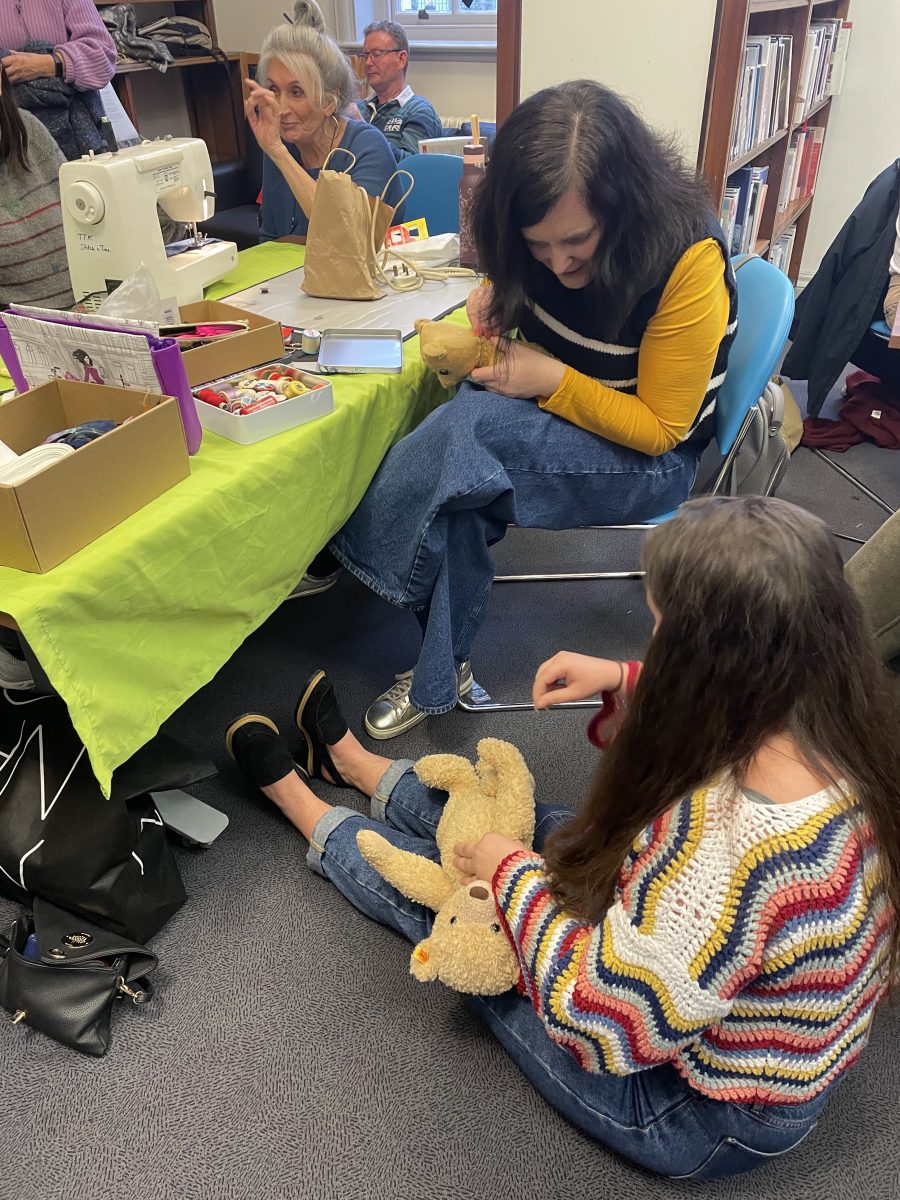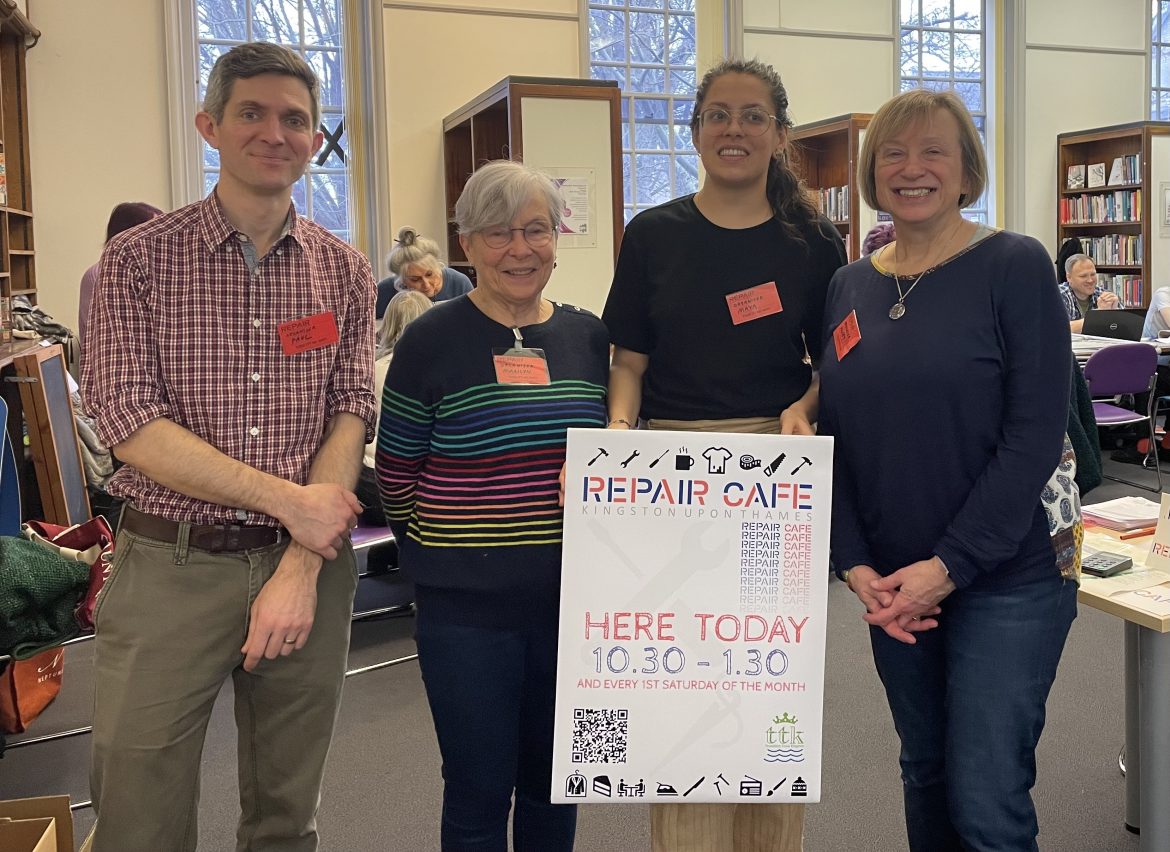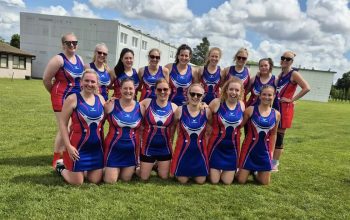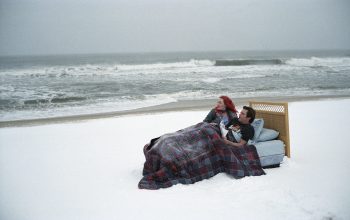Repair Cafes are the latest sustainable, money saving phenomenon to set up in Kingston and help locals through the cost-of-living crisis.
The crisis has continued into the new year, but there are still reasons to smile in Kingston. The make-do-and-mend attitude that helped the UK through two world wars and a recession has kicked in again.
People do not have to open their wallets anymore to replace special belongings when they break. Instead, they can take them to the new Repair Cafe at Kingston Library.
Locals have been encouraged to bring in their broken items where expert volunteers are on hand to fix them. In uncertain times, it has been a welcome relief for visitors to see treasured possessions given a new lease of life.
Many attended the cafe opening on Saturday. Clare Kyrou came from Epsom to fix her heated clothes airer. She said: “Culturally, we think it’s easy to buy something new and forget about waste. I look after my things but electricals I’m nervous to fix myself.
“Repairing anything in normal circumstances can be expensive but having a place in the community where it can be done by volunteers is a unique and lovely thing,” she added.
London Repair Cafes
Repair Cafes have opened across London in Waterloo, Epsom, and Twickenham as part of a global initiative which is challenging ‘throwaway culture’.
Sustainability was the original inspiration, but more have opened during the rising cost of living. They offer more than a chance to save the planet; the cafes make it possible to save money and can restore an aged treasure to its former glory.
Hilary Gander, a Kingston Repair Cafe organiser, said people bring in anything from vacuum cleaners to toy soldiers. “You don’t have to be passionate about saving the planet or cutting carbon. This space helps people save the important things at a difficult time,” she added.

Photo: Kate Davies
Why visit a local Repair Cafe?
Gander said people use Repair Cafes for one of three reasons: they are conscious of waste, they are bringing valuables, or they cannot afford to replace broken essentials. She says the crisis has meant more people have turned to Repair Cafes to save money and still have working electricals.
The volunteers who work on ‘repair tables’ have experience mending clothes, electronics, and toys. People have even been encouraged to take part in the repairs and learn new skills.
“We believe in sustainability and throwing less away by mending it. We also help people find ways to save energy, stop carbon emissions and eventually prevent climate change,” said Gander.
She adds that the Kingston area is the perfect place for a Repair Cafe due to its environmental history. The Circulatory and Kingston Hive are helping locals and Gander says she hopes her team can also support the community.
She said: “Students are welcome and would be perfect volunteers. I’m sure they have skills we don’t, so we’d love them to come along as a repairer or to use the service.”
Plans to open the cafe were in the works since October. Kingston Council and John Lewis provided space at the library and seed-funding meant it could open as a non-profit space. Gander says it runs “hand to mouth” but asks visitors to donate what they can.
Maya Farebrother, another cafe organiser, said she realised when she was studying engineering product design that end-of-life design was often forgotten. “I hope these events can inspire people to buy new products consciously and with repairing in mind, instead of just throwing them away,” she said.
The Repair Cafe, located at Kingston Library, will be open on the first Saturday of every month from 10.30am to 1.30pm.





